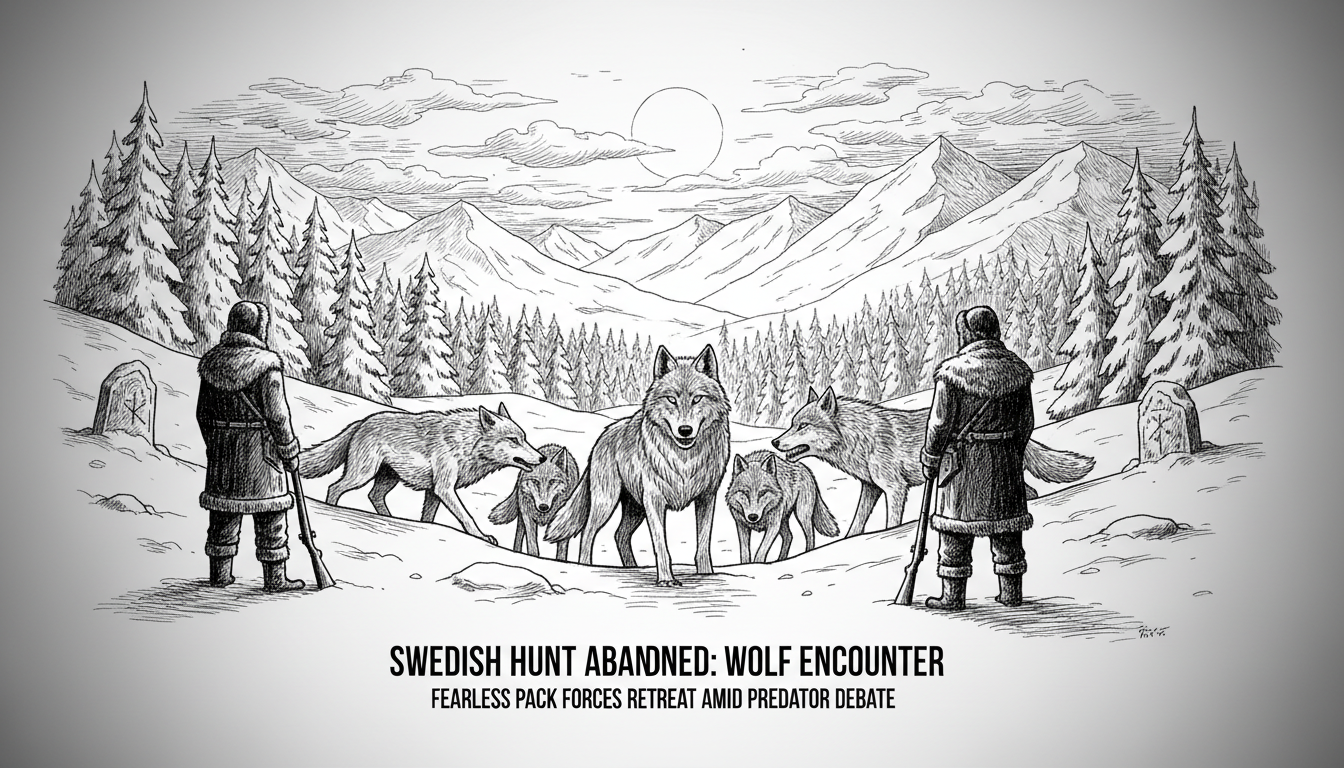A Swedish hunting expedition in Sörmland faced an unexpected interruption when a pack of wolves appeared during their deer hunt. The incident occurred just outside the boundary of the Axsjö hunting area last Saturday.
Jens Gustafsson led approximately twenty hunters into the forest to hunt roe deer and fallow deer. Just fifteen minutes into their expedition, a lookout called with alarming news. He had spotted several wolves approaching closely. Gustafsson immediately ordered all hunters to leash their dogs and called off the hunt for safety reasons.
Minutes later, another lookout spotted additional wolves. The hunting team counted seven wolves total within a few minutes. The wolves displayed unusual behavior, standing their ground and watching one of the lookouts instead of fleeing.
Gustafsson expressed concern about the wolves' lack of fear toward humans. He stated the animals have become too comfortable because they face insufficient hunting pressure. This encounter highlights growing tensions between conservation efforts and rural communities in Sweden.
Sweden maintains a complex system for predator management. Sörmland falls within the southern predator management area, which includes nine counties across southern Sweden. This region has specific regulations governing wolf populations and hunting permissions.
A licensed wolf hunt is scheduled to begin in early January and continue through mid-February unless canceled earlier by the County Administrative Board. The hunt will target exactly twelve wolves across the Ösjö and Ulva territories. No wolf hunting will be permitted in other counties within the management area.
When asked about opposition to wolf hunting, Gustafsson offered a perspective from those directly affected. He noted that people who oppose wolf hunting often don't experience the consequences firsthand. Farmers, hunters, and rural residents who actually live alongside wolves tend to have different opinions about predator management.
Gustafsson suggested that decisions about wolf management often get made far from the communities most affected by the outcomes. This disconnect between urban policymakers and rural residents represents an ongoing challenge in Swedish environmental policy.
Wolf encounters have become more frequent in recent years as Sweden's wolf population has recovered from near extinction. The Scandinavian wolf population now numbers around 450 animals, primarily concentrated in central Sweden. This recovery represents a conservation success story but has created new challenges for rural communities.
Sweden's wolf management policy balances European Union habitat directives with local concerns about livestock protection and human safety. The country allows limited licensed hunting to maintain population control while ensuring the species' long-term survival. This approach has drawn both praise and criticism from different stakeholder groups.
The incident in Sörmland illustrates how wildlife management decisions have real-world consequences for both animals and people. As predator populations continue to recover across Scandinavia, these encounters will likely become more common, requiring careful balancing of conservation goals and human interests.

